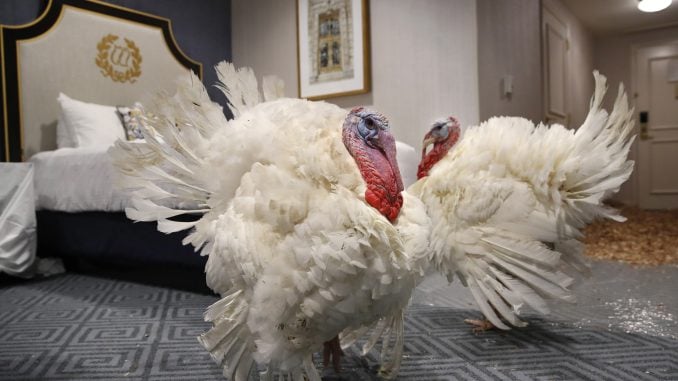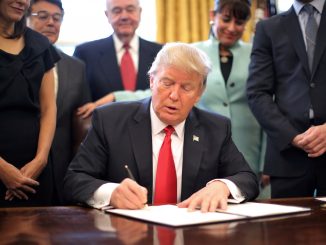

Thanksgiving is here. Along with turkey and mashed potatoes, one thing can be counted on: Awkward dinner table conversations. And unfortunately, this year the main course is a political matter.
Your environmentally-conscious cousin may point out they aren’t eating any turkey to reduce their carbon footprint. It seems logical. After all, you may have heard in the news how bad meat is supposed to be for the environment. The U.N. said so back in August. Maybe you’ve eaten a plant-based burger for the same reason.
Can going cold turkey on meat really improve planetary health? For the white (and dark) meat lovers, there’s some good news.
With the rise of concern about climate change, sustainability and the environment have become marketing tools. Despite having a footprint five times that of a classic bean-based veggie, plant-based meat companies often use these appeals. Impossible Foods, maker of a fake meat burger that “bleeds” soy protein, boasts that its products “help the planet when you eat [them].”
Despite what some would have you believe, meat is far from a climate change culprit. Animal agriculture accounts for less than 4% of greenhouse gas emissions in the U.S., according to official EPA data. That’s far less than transportation (28%), electricity production (28%) or industry (22%).
Researchers calculated that even if all 300 million-plus people in the United States went vegan tomorrow, it would only reduce U.S. greenhouse gas emissions by 2.6%. And that’s only the U.S., which itself is a fraction of global greenhouse gas emissions.
Is there room for improvement? Certainly — but changing your diet isn’t as effective as you think.
While raising livestock only accounts for about 4% of U.S. greenhouse gas emissions, that figure is about 4 times higher for the meat industry globally.
Why? Other countries’ agricultural practices aren’t as advanced as those of U.S. farmers and ranchers.
Coercing other countries into changing their diets is unrealistic. Animal farming contributes to the livelihood of over 1.7 billion people globally and will become more essential as the need for animal protein is only expected to increase.
Further, according to a recent study from Tufts University, the UN’s recommended “planetary health diet” is financially unfeasible for at least 1.6 billion people. The planetary health diet also suggests only a single ounce of meat—not per meal but daily. More than a billion people are located in developing countries, areas where meat is an essential tool in providing vitamins and minerals.
What’s the best solution to curbing the world’s animal emissions? Export our technology.
The US produces 18% of the world’s beef with only 8% of the world’s cattle. There’s room and an environmental need to spread America’s agricultural advancements globally. As more developing and underdeveloped countries create more complex agricultural systems it is crucial to help positively shape their industries.
Over the past 45 years, advancements have allowed American farmers to produce the same amount of beef from 36% fewer cattle. Since 1961, we have doubled livestock production, while slicing GHG emissions by 11.3%. Sharing the know-how that got us to this point will be the most effective way to lower the impact of farming animals around the world.
Of course, not everyone is a farmer. There are plenty of ways to reduce your carbon footprint more effectively than restricting your diet.
Food waste is a top contributor to GHG emissions. In developing countries, food waste is often a result of inefficient storage and spoiling. In advanced countries, it’s often more intentional as people tend to reject food because we overestimate how much we need to purchase. If the world implemented composting, we could reduce GHG emissions by 2.3 billion tons by 2050.
There are also plenty of things outside of food that each person can do. We don’t recycle enough. Self-rationing electricity is a simple way to cut emissions. Driving cars with higher fuel efficiency or utilizing public transportation is also effective.
This Thanksgiving, don’t feel guilty about carving the turkey. Just don’t waste the leftovers.
Will Coggin is the managing director of the Center for Consumer Freedom



